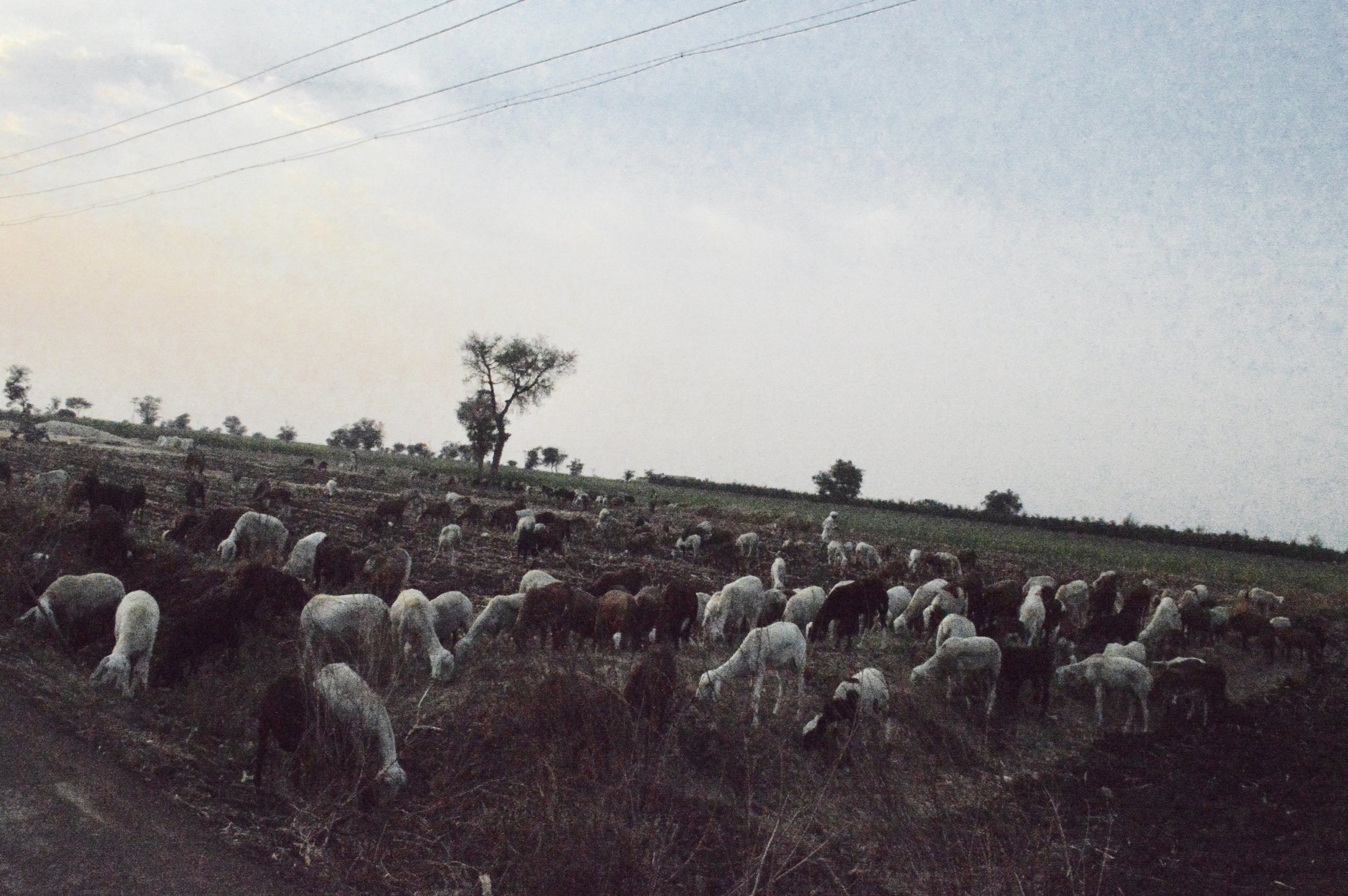what are notes from ‘the field’
Grazing goats, somewhere in Belgaum. March 2017. © Rishita Nandagiri
Every time I’ve discussed my data collection experiences or written about field work, I’ve been drawn to the phrase “notes from the field”. The pithiness appeals to me: talking about fieldwork often takes the form of “notes”, scribbled in margins and drawn from fieldnotes or my fieldwork diary. It’s the stuff that doesn’t quite make it in, the marginalia of knowledge production that’s scratched onto post-it notes or left to anecdote.
The before and the after. It doesn’t just imply a passage of time and a collection of knowledge, but some kind of transformation. As though the experience of being elsewhere has changed the researcher in some profound manner, allowing them to understand “the field” and refract it into knowledge for others’ consumption. This idea of “the field” as elsewhere also questions our ideas of “fieldworker”: who is it that we imagine as “field worker”? Who do we make space for as the producer of knowledge, of knower of knowledge? Where can knowledge be produced, and about whom?
I grappled with a lot of this over the course of my own data collection- dancing over the line of insider/outsider, wondering about how knowledge is produced and whose knowledge production is valued. I contended with the gendered nature of research- who is considered a researcher, and what kinds of research is valued. My position at a renowned institution, at the heart of Empire, grappling with coloniality at every turn.
In the months since “post” fieldwork, I’ve grappled with similar emotions and questions as I navigate academia. Who is considered a researcher, what is valid research, what types of research are valued and why? What does it mean to be an early career researcher? I continue to scribble in the margins, marking out where my disciplines overlap; where I speak across and against. Where I dance across the lines and where I draw them.
These are ‘notes from the field’: rambling on early career experiences in navigating academia. Notes scribbled in the margins.
